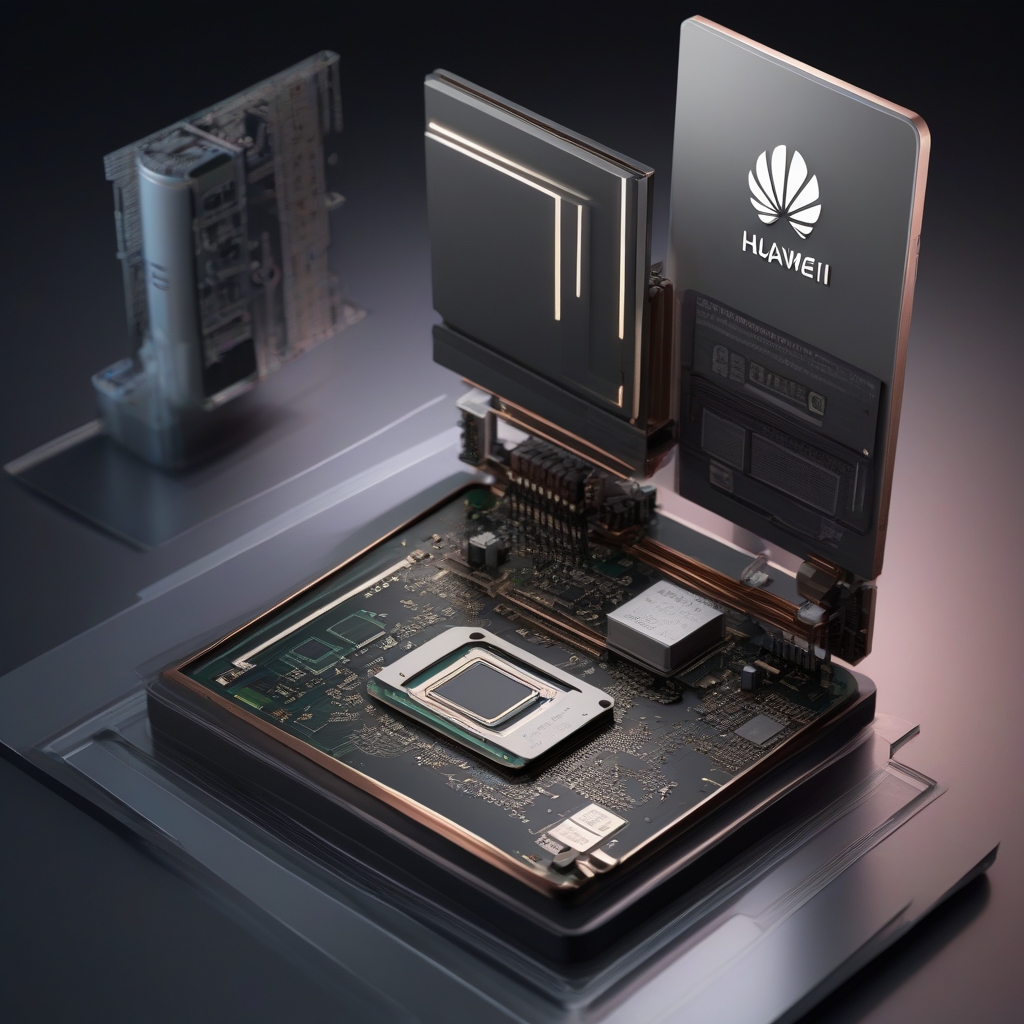In the rapidly evolving world of artificial intelligence (AI) and semiconductor technology, Huawei has taken another giant leap forward with its new AI chip, positioning itself as a formidable rival to Nvidia. This article delves into the details of Huawei’s latest innovation, examining its potential impact on the tech industry and how it stands up against established competitors like Nvidia.
Huawei’s Leap in AI Chip Technology
Huawei, a titan in the telecommunications and consumer electronics sectors, has been steadily ramping up its efforts in semiconductor manufacturing. Their new AI chip represents a significant advancement, signaling Huawei’s commitment to becoming a key player in the AI hardware space.
Key Features of Huawei’s AI Chip
Huawei’s latest AI chip is designed to offer enhanced performance and energy efficiency, which are crucial for advanced AI applications. Some of the standout features of this chip include:
- Advanced Processing Power: The chip leverages cutting-edge technology to deliver exceptional computational capabilities, making it ideal for complex AI tasks such as deep learning and neural network processing.
- Energy Efficiency: With a focus on reducing power consumption, Huawei’s chip promises to deliver high performance without the excessive energy costs associated with older semiconductor technologies.
- Enhanced Integration: The chip integrates seamlessly with Huawei’s existing hardware and software ecosystem, providing a streamlined experience for developers and users alike.
Why Huawei is Looking for Nvidia Alternatives
The global semiconductor landscape has long been dominated by industry stalwarts like Nvidia, which is renowned for its powerful GPUs that drive many AI applications. However, several factors have prompted Chinese firms, including Huawei, to seek alternatives.
Geopolitical Tensions
Ongoing geopolitical tensions between the United States and China have led to increased scrutiny and restrictions on technology exports. Huawei, in particular, has faced significant challenges due to sanctions and the blacklisting by the US government. As a result, the company has intensified its efforts to develop self-reliant semiconductor capabilities to mitigate the risks associated with relying on foreign technology.
Supply Chain Disruptions
The COVID-19 pandemic exposed vulnerabilities in the global supply chain, leading to shortages and delays in semiconductor production. By developing its own AI chips, Huawei aims to secure a more stable supply of critical components, ensuring that its products and services can be delivered without disruption.
Technical Comparison: Huawei vs. Nvidia
When comparing Huawei’s new AI chip to Nvidia’s offerings, several key aspects come into play:
Performance
Nvidia’s GPUs have long been the gold standard for AI processing, known for their exceptional performance and versatility. Huawei’s new AI chip is designed to compete directly with Nvidia in this regard, boasting impressive computational power that could potentially match or even surpass some of Nvidia’s latest models.
Energy Efficiency
One of the standout features of Huawei’s AI chip is its focus on energy efficiency. By optimizing power consumption, Huawei aims to deliver high-performance AI capabilities without the associated energy costs that often accompany such technology. This could be a significant advantage in applications where energy efficiency is a critical concern, such as in data centers and edge computing.
Integration and Ecosystem
Nvidia’s strength lies in its extensive ecosystem, which includes a wide range of software tools and developer support. While Huawei’s ecosystem is not as mature, the company is making strides to provide a comprehensive suite of tools and resources for developers. The tight integration with Huawei’s hardware and software platforms could offer a seamless experience for users within the Huawei ecosystem.
The Future of AI Hardware
The introduction of Huawei’s new AI chip is poised to shake up the AI hardware market, offering a compelling alternative to established players like Nvidia. As Huawei continues to innovate and refine its semiconductor technology, the competition in the AI space is likely to intensify.
Market Impact
Huawei’s entry into the AI chip market could have far-reaching implications:
- Increased Competition: Greater competition in the AI hardware space could drive innovation and lead to better performance and lower costs for consumers.
- Supply Chain Resilience: By developing its own chips, Huawei can reduce its dependence on foreign suppliers, enhancing the resilience of its supply chain.
- Technological Advancements: Huawei’s investment in AI chip technology could spur advancements across the industry, benefiting the broader technology ecosystem.
Challenges Ahead
Despite the promising advancements, Huawei faces several challenges:
- Regulatory Hurdles: Navigating the complex landscape of international trade regulations and sanctions remains a significant challenge for Huawei.
- Market Penetration: Breaking into a market dominated by established players like Nvidia will require Huawei to demonstrate not only technical superiority but also reliability and support.
- Developer Support: Building a robust ecosystem of software tools and developer resources will be crucial for the widespread adoption of Huawei’s AI chip.
Conclusion
Huawei’s new AI chip marks a significant milestone in the company’s ongoing efforts to innovate and compete in the global technology landscape. With its advanced performance, energy efficiency, and integration capabilities, Huawei is well-positioned to challenge Nvidia and other established players in the AI hardware space. As the battle for AI supremacy heats up, the beneficiaries will undoubtedly be the end-users, who can look forward to more powerful, efficient, and cost-effective AI solutions in the coming years.

Leave a Reply